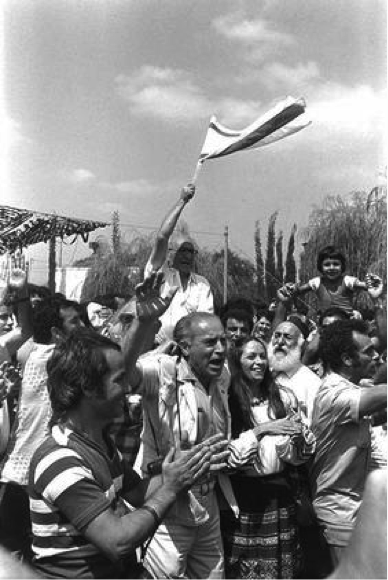July 4, 1976
Israeli special forces pull off a daring hostage rescue at the airport in Entebbe, Uganda.
On June 27, 1976, an Air France flight from Tel Aviv to Paris was hijacked after a stop in Athens. Nearly 250 passengers were on board, including 83 Israelis. Of the four initial hijackers, two were from the Popular Front for the Liberation of Palestine, and two from Germany’s Baader-Meinhof Gang. To refuel, the plane was first diverted to Benghazi, Libya, where it landed just after 1 p.m.
Though Libyan authorities claimed they did not allow the plane to refuel, it took off after nearly six hours and flew toward Amman, Jordan, before redirecting and landing in Entebbe at 3:15 a.m. June 28. The following day, the hijackers, joined by three additional terrorists, demanded the release of 53 Palestinian militants being held in Israeli, French, Swiss and Kenyan jails.
The terrorists released more than 100 of the hostages July 1 but kept nearly all of the Israeli and Jewish passengers. The same day, the Israeli government announced that it had begun negotiations with the French to secure the release of the remaining hostages. Talks progressed slowly, and a number of deadlines set by the hijackers were extended.
Israeli officials publicly maintained that they were continuing to negotiate with the hijackers, but at the same time the military drew up a secret rescue plan, Operation Thunderbolt. Israel had information about the situation at the airport from informants and possessed blueprints of the Entebbe airport because an Israeli company built it.
At 1 a.m. July 4, 200 soldiers from the elite Sayeret Matkal land at Entebbe, surprising the terrorists and Ugandan soldiers who had joined them. The battle lasts just 35 minutes; all seven hijackers and 20 Ugandan soldiers are killed, as are three of the hostages. The lone IDF casualty is the operation’s commander, Yonatan Netanyahu, older brother of Benjamin Netanyahu. Yonatan is recognized as a national hero.
The success of the operation brings euphoria to the Israeli public and praise from President Gerald Ford and West German Chancellor Helmut Schmidt. The rescue happens to coincide with the commemoration of the U.S. bicentennial of independence.










